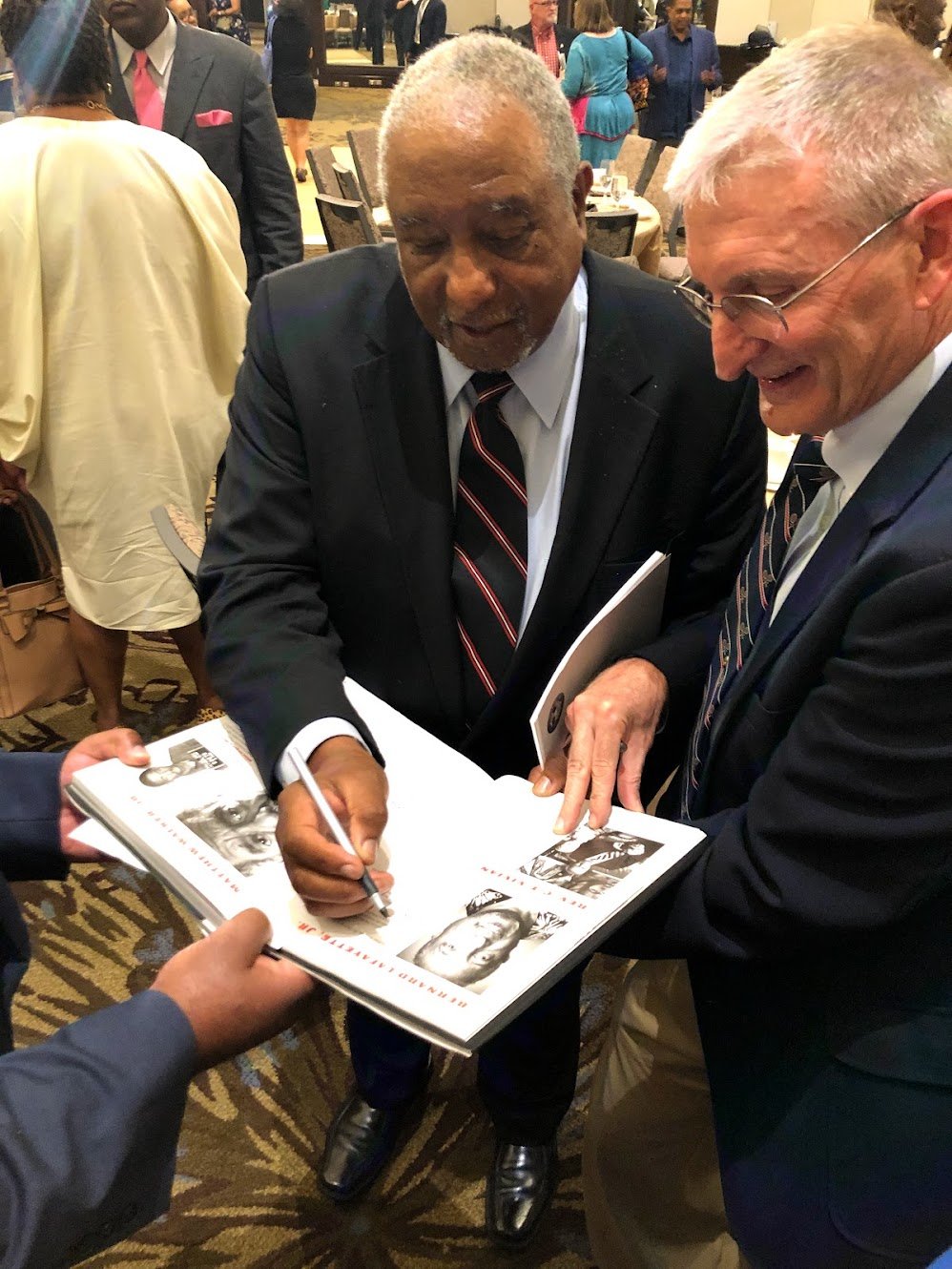
The Weekly Reflections during this Black History Month continue to focus on people who made major contributions to the modern Civil Rights Movement but whose stories are not widely known to the general public. Today’s post lifts up the witness of Dr. Bernard Lafayette. His practice of and commitment to nonviolence were so profound that he was given the nickname “Little Gandhi” by others in the movement. He participated in and helped to organize many of the major campaigns of the movement throughout the 1960’s including the Lunch Counter Sit-ins, the Freedom Rides, the Selma Campaign, the Chicago Campaign, and the Poor People’s Campaign. Bernard Lafayette was a close confidant of Dr. King and met with him the morning he was murdered on April 4, 1968. The details of his participation and leadership go far beyond the limits of this post. I will share just a couple examples that are representative of his witness.
One of the most famous places associated with the modern Civil Rights Movement is Selma, AL. Many people are aware of the campaign there in 1965 that included “Bloody Sunday” when peaceful protestors were beaten by Alabama State Troopers and local law enforcement officers as they crossed the Edmund Pettis Bridge. The Selma campaign played a major part leading to the passage of the Voting Rights Act of 1965. By the time of these events in 1965, Bernard Lafayette had already been in Selma for three years as an organizer with the Student Nonviolent Coordinating Committee (SNCC) working to register Black people to vote in the face of ongoing threats and intimidation. On the same night that Medgar Evers was murdered in Mississippi, June 12, 1963, Dr. Lafayette was severely beaten by white supremacists in Selma. He continued his work there through the campaign of 1965.
During the final years of Dr. King’s life, he was widely unpopular for insisting on addressing what he called the interrelated “giant triplets of evil” – racism, poverty, and militarism. In 1966, the movement focused on Chicago to show the connection between poverty and racism in the North especially in the area of housing. Dr. King chose Bernard Lafayette to help organize that campaign. The last campaign envisioned by Dr. King was The Poor People’s Campaign which planned to bring a racially diverse group of poor people from around the country to camp out in Washington, DC to dramatize the need for economic justice. Once again, Dr. King turned to Bernard Lafayette to help organize that campaign which Dr. King did not live to see. Throughout all the years and events of his involvement in the movement, Bernard Lafayette remained committed to nonviolence not merely as a tactic for social change but as a way of life based on faith in Jesus. In the years since, he devoted his life to training others in nonviolence as a way of life for individuals and communities.
A few years ago, my daughter in Pittsburgh invited me to an interfaith event where Dr. Lafayette was the main speaker. I had the privilege of meeting him and having him sign his picture in a book about the Freedom Rides of 1961. Although I was already familiar with most of the history of his involvement in the movement, meeting him in person was a deeply meaningful experience that made the history come alive for me. Dr. Lafayette in now 83 years old. Along with other surviving leaders of the modern Civil Rights Movement, their remaining time on earth is short but their witness will live on. It is now up to us to share their stories and to take the baton to run our leg of the race for racial justice.
The videos posted below feature Bernard Lafayette. The first one comes from a documentary about the Freedom Rides and focuses on the music that helped people to endure and continue the struggle when they were sent to the notorious Parchman Peneteniary in Mississippi. At 3.30 of the video, Bernard Lafayette shares his experiece while imprisoned there. The second video is from more recent times and features a story of how Bernard Lafayette inspired a member of the US Army Jazz Ambassords.
